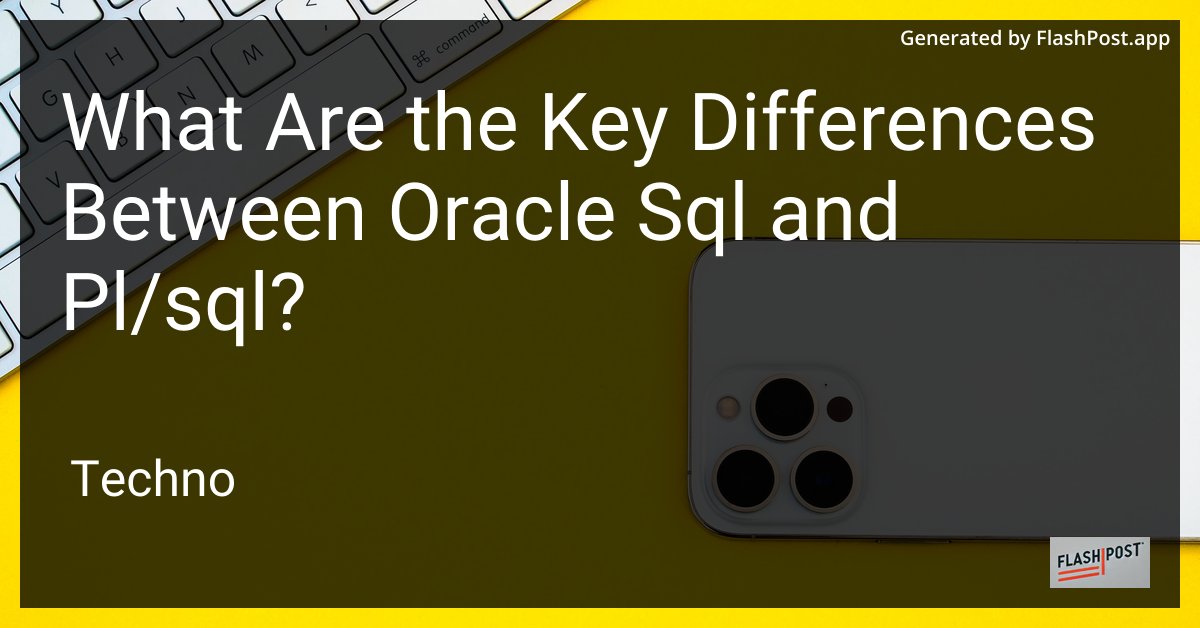
In the realm of Oracle Database systems, understanding the distinctions between Oracle SQL and PL/SQL is crucial for effective database management and application development. While both are integral to Oracle, they serve different purposes and possess unique characteristics. This article delves into the key differences between Oracle SQL and PL/SQL to enhance your understanding and optimize your database interactions.
What is Oracle SQL?
Oracle SQL, an acronym for Structured Query Language, is a standard language used to interact with relational databases. It is primarily designed for querying, updating, and managing data stored in databases. SQL enables database administrators and developers to execute tasks such as data retrieval, insertion, updating, and deletion with ease. View table details oracle SQL to better understand its structure and manipulation.
Key Features of Oracle SQL:
- Data Retrieval and Manipulation:
-
SQL facilitates efficient data query through SELECT statements and allows for data modification with INSERT, UPDATE, and DELETE operations.
-
Schema Creation and Manipulation:
-
SQL provides the capability to define, manipulate, and control data structures (schemas) using Data Definition Language (DDL).
-
Transactional Control:
- Ensures data integrity with features like COMMIT, ROLLBACK, and SAVEPOINT to manage transactions.
What is PL/SQL?
PL/SQL, short for Procedural Language/Structured Query Language, is Oracle Corporation’s procedural extension for SQL. It allows developers to write sophisticated programs that include procedural logic within the Oracle Database environment. PL/SQL integrates seamlessly with SQL, enabling implementation of complex business logic and enhancing the transactional capabilities of Oracle SQL, as demonstrated in oracle SQL interpretation.
Key Features of PL/SQL:
- Procedural Capabilities:
-
Allows the use of variables, control structures (such as loops and conditionals), and exception handling in managing data operations.
-
Block Structure:
-
PL/SQL organizes code into logical blocks, making it modular and easier to manage.
-
Error Handling:
- Improves robustness with sophisticated error handling capabilities through exception handling.
Key Differences Between Oracle SQL and PL/SQL:
- Nature and Purpose:
-
Oracle SQL is a declarative language used primarily for data access and manipulation. In contrast, PL/SQL is procedural, tailored for writing application logic and performing complex computations.
-
Execution Context:
-
SQL executes as a single statement, optimizing individual tasks like data retrieval. PL/SQL, however, is suited for executing blocks or batches of statements in the form of procedures and functions.
-
Performance and Efficiency:
-
SQL directly interacts with the database engine to perform operations, providing optimal performance for standalone queries. PL/SQL, while more versatile for procedural tasks, may involve additional overhead due to its block and procedural nature.
-
Extended Features:
- PL/SQL enhances SQL capabilities through procedural constructs, such as conditional statements and iterations, allowing for more flexible logic implementation and complex processing tasks.
In conclusion, while Oracle SQL serves as the backbone of data interaction in Oracle databases, PL/SQL extends its power by enabling the development of robust and dynamic applications. Understanding these differences is crucial for leveraging each tool’s strengths in database operations and application development.